Every fraction of time matters in the healthcare industry. People want to avoid standing in long lines or waiting on the phone for medical personnel to respond.
In this post-pandemic era, healthcare practitioners must be more attentive to customer service. Given the virus's instillation of dread and vigilance in people, the healthcare business must stay ahead of the game.
This leads them to the use of healthcare chatbots.
According to a study by Grand View Research, the global healthcare chatbot market is expected to reach $6.8 billion by 2028, growing at a CAGR of 24.7% from 2022 to 2028.
Thinking about implementing a chatbot to help your healthcare business? We’ll tell you what to expect, how to know if you require it or not, and what the right time to implement it.
Alright, enough hype around it. Let’s get started and check out what a healthcare chatbot actually is.
What is a Healthcare Chatbot?
A healthcare chatbot is an artificial intelligence-powered software program that interacts with patients through conversation.
It simulates human conversation and uses natural language processing to understand and respond to patient queries.
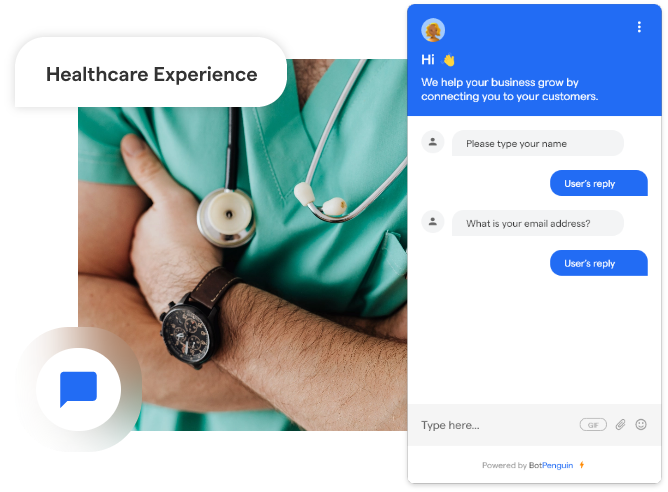
Healthcare chatbots are designed to cater to the healthcare industry's unique needs, providing reliable and accurate information, assisting with appointment scheduling and triaging, and even offering self-care advice.
Not only Healthcare is being Automated using Chatbot, Here are the other use cases of Chatbot-
How Are Chatbots Used in the Healthcare Industry?
Healthcare chatbots play a vital role in transforming how healthcare services are delivered. They can be used in various ways, such as:
Patient Support
Chatbots can act as virtual healthcare assistants, providing immediate support to patients with common health concerns or questions.
They offer personalized advice, symptom evaluation and even suggest appropriate self-care measures.
Appointment Scheduling
Healthcare chatbots streamline appointment scheduling by allowing patients to book appointments conveniently.
They can also send automatic reminders to patients and healthcare providers, reducing no-shows and improving efficiency.
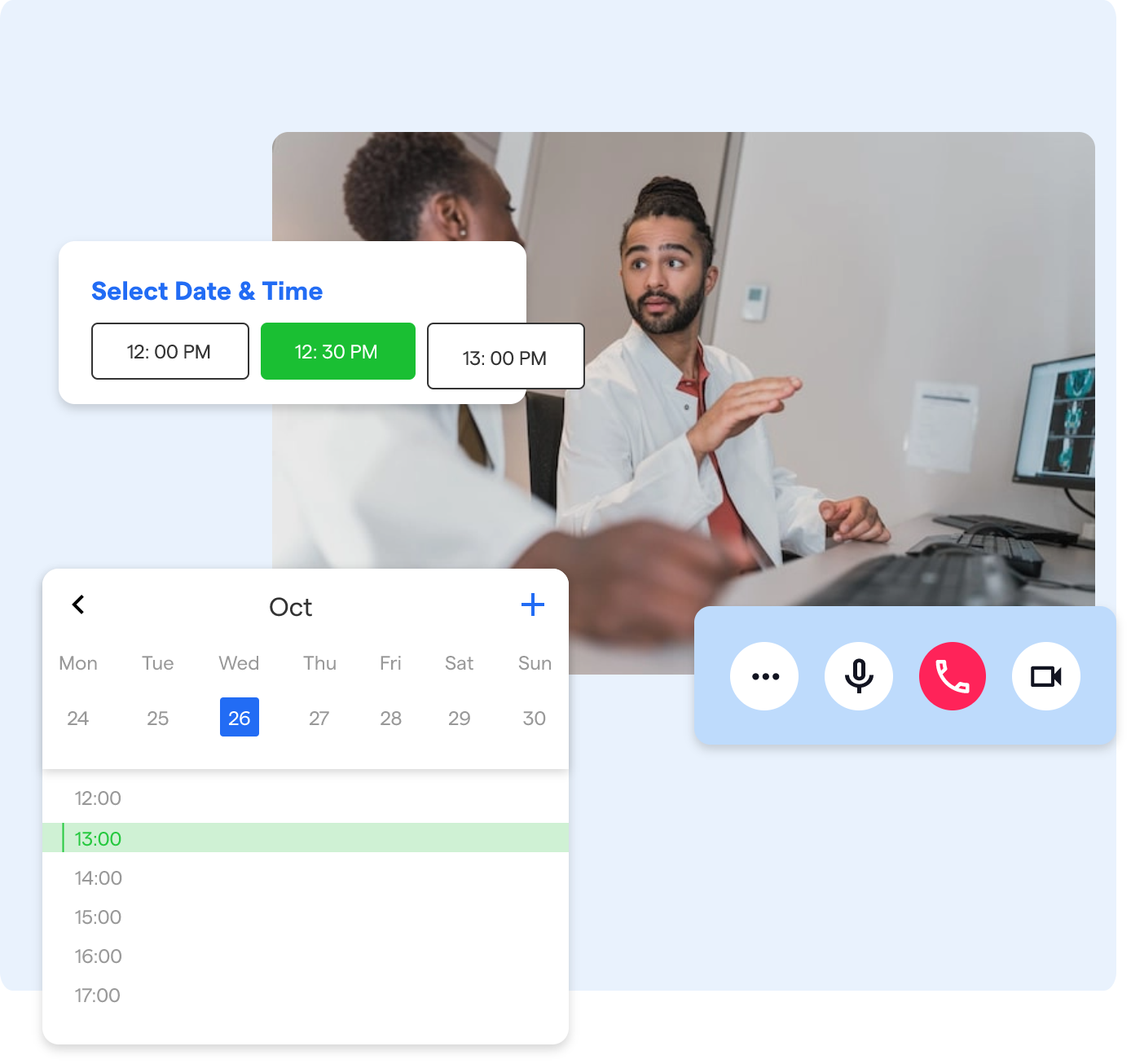
Triage Assistance
Chatbots can effectively assist in triaging patients by evaluating their symptoms and assessing the urgency of their condition.
This helps prioritize patient care and ensures that those who require immediate attention receive it promptly.
What Makes Investing in a Healthcare Chatbot a Smart Move?
Investing in a healthcare chatbot can yield several advantages for patients and healthcare providers. Here are some compelling reasons why it is a smart move:
Enhanced Patient Assistance
Implementing a healthcare chatbot can greatly enhance the overall patient experience. A chatbot can reduce patient wait times and provide timely information by offering instant responses to frequently asked questions, improving patient satisfaction and engagement.
24/7 Availability
With a healthcare chatbot, organizations can provide round-the-clock availability to their patients. Patients can access support and information anytime, even outside regular business hours.
This availability can be particularly valuable for patients with urgent questions or those seeking immediate assistance.
Efficient Appointment Scheduling
Chatbots can streamline appointment scheduling by allowing patients to easily book, reschedule, or cancel appointments through a conversational interface.
This reduces the administrative burden on staff and ensures that appointments are managed efficiently.
Personalized Health Recommendations
A healthcare chatbot can leverage machine learning algorithms and patient data to provide personalized health recommendations.
The chatbot can offer tailored advice, preventive measures, and insights to improve individual health outcomes by analyzing symptoms, medical history, and risk factors.
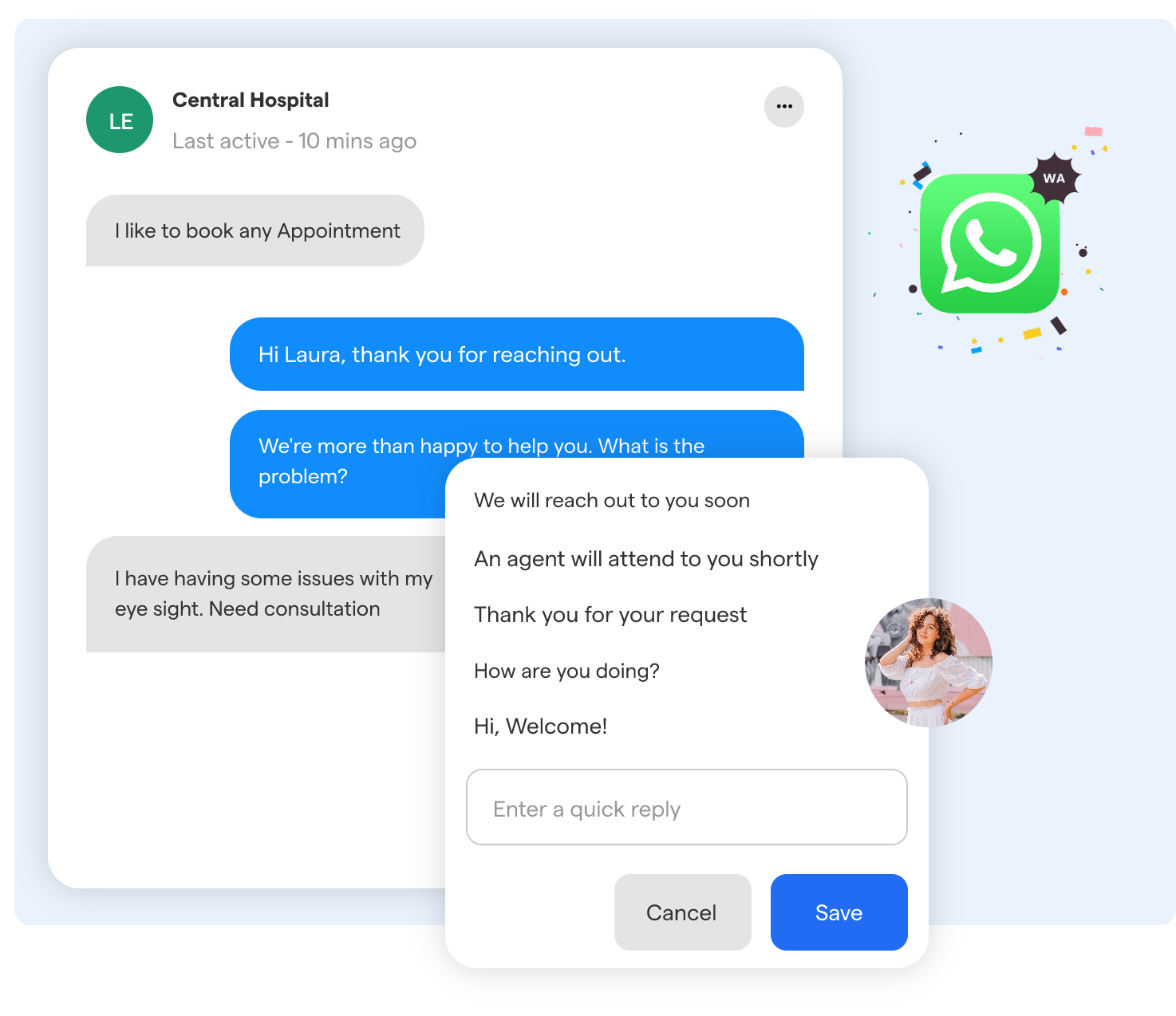
Cost Savings and Efficiency
Investing in a healthcare chatbot can lead to cost savings and improved efficiency in healthcare organizations. By automating repetitive tasks and reducing manual workload, staff can focus on more complex and critical tasks.
Additionally, chatbots can help reduce operational costs by scaling services without the need for additional human resources.
Continuous Monitoring and Follow-up Care
Chatbots can be integrated with wearables or other monitoring devices to collect real-time patient health data. The chatbot can provide personalized monitoring and follow-up recommendations by analyzing this data.
For example, it can remind patients to take medications, guide lifestyle changes, or alert healthcare providers if any abnormality is detected.
Language Assistance and Multilingual Support
Healthcare chatbots can be programmed to provide language assistance and multilingual support.
This is particularly beneficial in diverse communities where language barriers hinder effective communication between patients and healthcare providers.
By offering language support, chatbots can ensure patients feel comfortable and communicate their health concerns accurately.
Health Education and Promotion
Chatbots can play a crucial role in health education and promotion. By conversationally providing educational content, chatbots can empower patients to make healthier lifestyle choices.
They can deliver personalized health tips, educate patients about chronic diseases, provide information on preventive measures, and promote healthy behaviors in a user-friendly and interactive way.
Data Collection and Analysis
Healthcare chatbots can collect valuable data on symptoms, health conditions, and patient preferences by interacting with patients.
This data can be anonymized for research, population health management, and improving healthcare delivery.
Chatbots can be a valuable data source that can help healthcare organizations make informed decisions and identify trends or patterns in patient care.
Who Should Invest in a Healthcare Chatbot?
If you are considering investing in a healthcare chatbot, here are some potential stakeholders who might benefit from its implementation:
Healthcare Providers
Hospitals, clinics, and healthcare practices can benefit from chatbots for appointment scheduling, patient inquiries, and providing general medical information.
Chatbots can alleviate administrative burdens, streamline patient communication, and enhance patient experience.
Telemedicine Platforms
Telemedicine platforms can integrate chatbots to guide patients through initial assessments, collect medical history, and offer preliminary medical advice before connecting them with healthcare professionals.
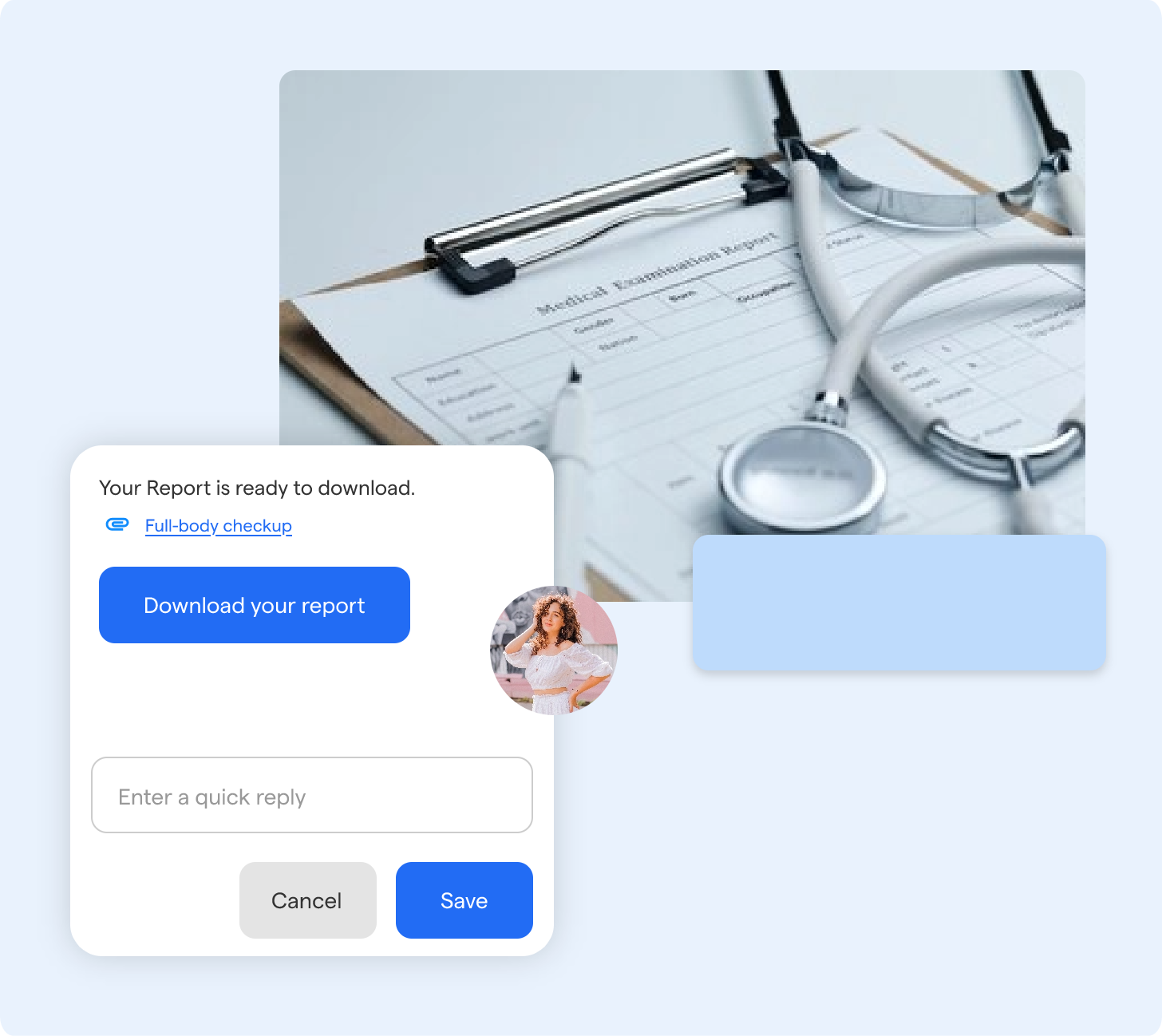
Mental Health Services
Chatbots can be valuable in providing mental health support, coping strategies, resources, and immediate assistance to individuals experiencing stress, anxiety, or other emotional challenges.
Senior Care Facilities
Chatbots can assist senior residents in care facilities with medication reminders, scheduling activities, and answering common queries, enhancing their quality of life and reducing caregiver burdens.
Health and Wellness Apps
Health and wellness apps can integrate chatbots to offer personalized fitness advice and nutrition information and support users in achieving their health goals.
Suggested Reading:
Appointment Booking chatbot solutions for hospitals by BotPenguin
When is the Right Time to Invest in a Healthcare Chatbot?
Investing in a healthcare chatbot can be a strategic move for healthcare providers, but the right time to do so depends on several factors.
Here are some considerations to help determine when it may be the right time to invest in a healthcare chatbot:
Increasing patient volume and communication needs
If a healthcare provider is experiencing a high volume of patient queries and struggles to manage them effectively, investing in a chatbot can help automate and streamline communication.
High Call Volumes
If your call center is overwhelmed with patient calls, a chatbot can handle basic queries, freeing up human agents to address more complex issues.
Appointment Management
When appointment scheduling becomes challenging, a chatbot can provide real-time availability, booking, rescheduling, and reminders, enhancing patient convenience.
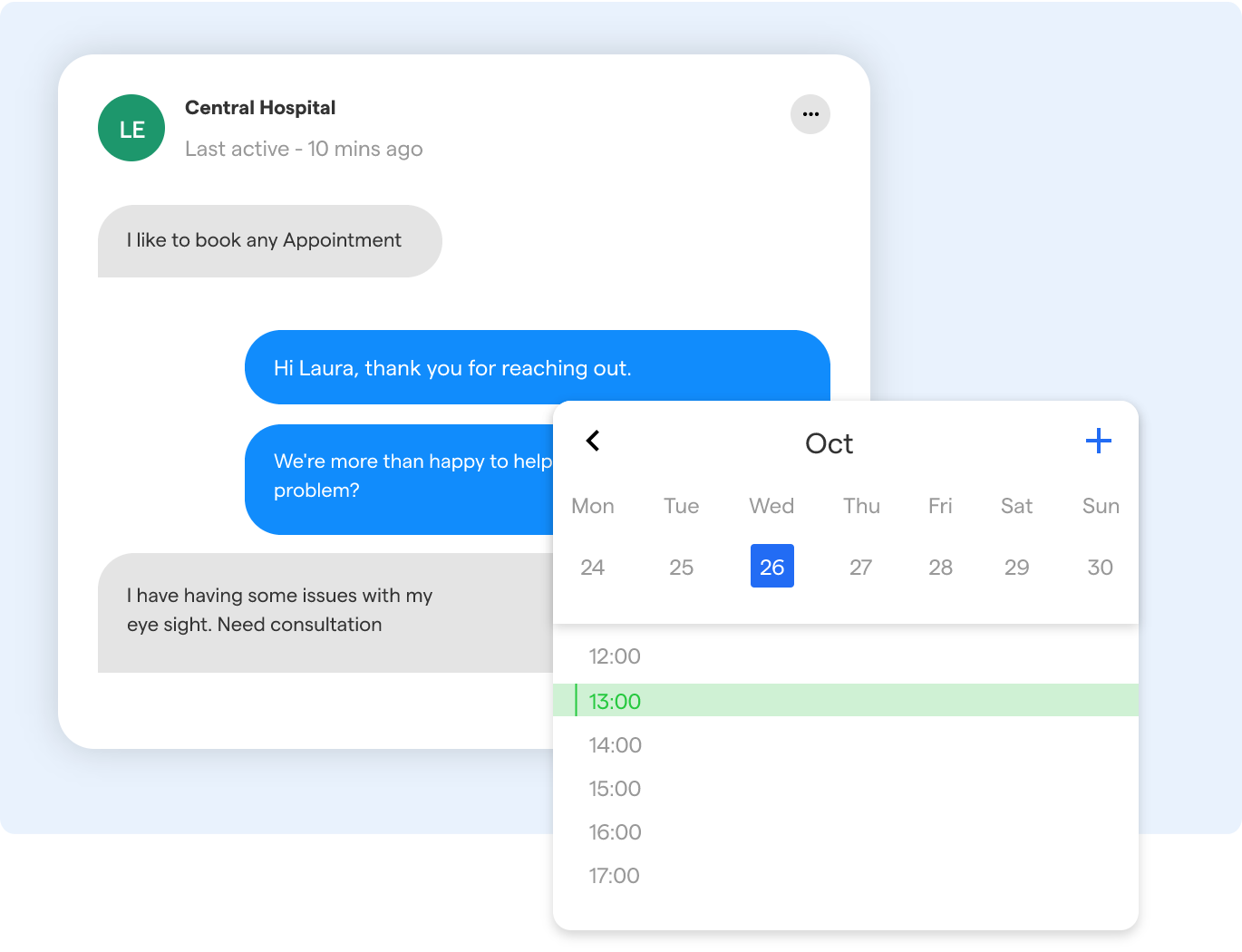
After-Hours Support
If patients require support beyond regular hours, a chatbot can offer 24/7 assistance for non-urgent inquiries, ensuring consistent service.
Reducing Wait Times
A chatbot can update waitlists, estimated appointment times, and general health information when patients face extended wait times.
Patient Education
A chatbot can deliver accurate, personalized health advice and resources if patients seek reliable medical information.
Cost Savings
When cost-effectiveness is a priority, a chatbot can handle routine tasks at a fraction of the cost of human labor.
Remote Patient Monitoring
If your organization offers remote care, a chatbot can gather patient data, monitor symptoms, and provide alerts to medical staff as needed.
Efficient Triage
When patients require rapid triage, a chatbot can assess the symptom's severity and recommend appropriate actions, facilitating timely care.
Innovative Patient Experience
A chatbot can align with your digital healthcare strategy if you aim to provide a modern and tech-savvy patient experience.
Conclusion
Chatbots are becoming increasingly popular in every business. Healthcare organizations can use them and ensure their customers receive the finest care.
A bot can provide your patients with immediate medical assistance and a quick reminder to take medications.
Before developing a healthcare chatbot, conducting research and outlining your goals is critical. Being attentive to planning and setting expectations will be advantageous while deploying this program.
Once you’re done with your R&D, Hop on to BotPenguin- a powerful, no-code chatbot builder, to create your first healthcare chatbot for free.
Why BotPenguin and not any other platform? Because no other platform will allow you to:
- Integrate (Natively, without any coding) your Healthcare Chatbot with 60+ Platforms like Google Calendar and Calendly. Let your patient book appointments in a flash & avoid long waiting hours.
- Use ChatGPT to give advanced and personalized guidance. Easily train your healthcare chatbot to collect patient details in a human-like conversational way.
- Share your service catalogs with your patients over platforms like WhatsApp, Facebook, Instagram, and Telegram.
- Collect feedback & reviews. Let your patients share their opinions and good words about your service.
- Help your Patients with prescription and test reports with them waiting for hours.
That’s just the tip of the iceberg. BotPenguin has a lot more to offer. Want to put all these features to the test and find out what else BotPenguin can do for your healthcare business?
Frequently Asked Questions (FAQs)
What are the key advantages of investing in a healthcare chatbot?
Investing in a healthcare chatbot improves patient engagement, streamlines administrative processes, increases accessibility to healthcare information, enhances operational efficiency, and delivers personalized care.
How does a healthcare chatbot enhance patient experience?
A healthcare chatbot enhances patient experience by providing 24/7 availability for queries, personalized health advice, instant responses, convenient appointment scheduling, and efficient administrative support.
Can healthcare chatbots save costs for healthcare organizations?
Healthcare chatbots can automate routine tasks, reduce response times, and free up staff, resulting in significant cost savings for healthcare organizations.
In which areas can healthcare chatbots be implemented?
Healthcare chatbots can be implemented for patient engagement, appointment scheduling, symptom checking, remote consultations, health education, and more.
What are the future possibilities for healthcare chatbots?
The future of healthcare chatbots includes advancements in understanding complex medical queries, voice-enabled interactions, multilingual capabilities, and continued improvement in patient care and outcomes.


